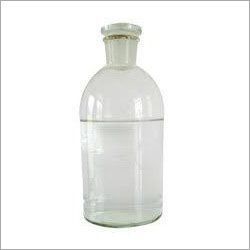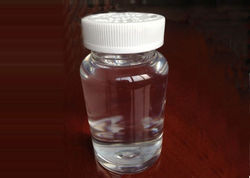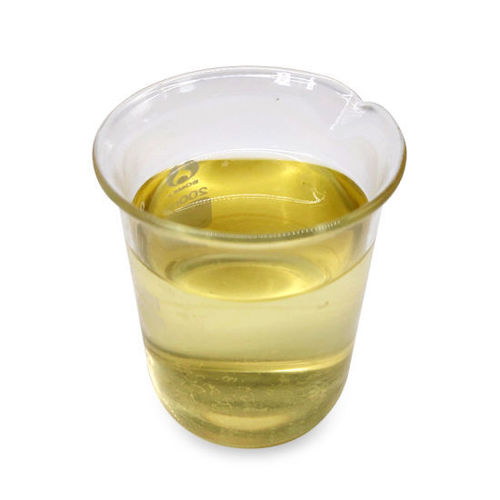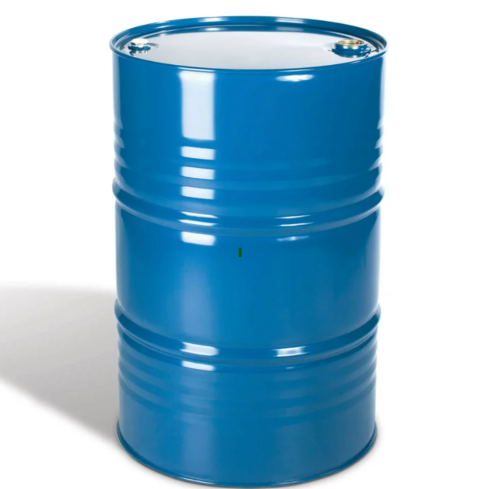Welcome to Our Company
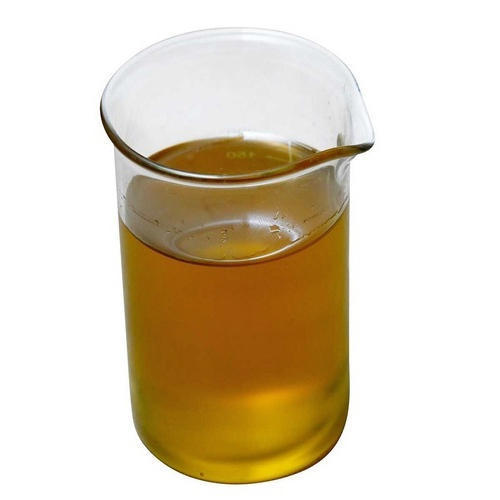
Ricinoleic Acid
Product Details:
- Grade Technical Grade
- Solubility Water Soluble
- Application Industrial
- Storage Room Temperature
- Physical Form Liquid
- Purity 90%
- Click to View more
X
Ricinoleic Acid Price And Quantity
- 1 Kilograms
Ricinoleic Acid Product Specifications
- Liquid
- 90%
- Industrial
- Room Temperature
- Water Soluble
- Technical Grade
Product Description
Ricinoleic acid is a fatty acid that is monounsaturated and has a hydroxyl group (-OH) on its 12th carbon atom. Its chemical structure is as follows:
CH3(CH2)5CH=CH(CH2)7COOH
The hydroxyl group is what sets ricinoleic acid apart from other fatty acids, giving it unique properties and making up approximately 90% of the fatty acid content in castor oil. Castor oil is the primary source of ricinoleic acid, and it is obtained from the seeds of the castor oil plant (Ricinus communis).
Ricinoleic acid has several interesting properties that make it valuable in various industrial and medical applications:
1. Laxative: One of the well-known properties of castor oil is its strong laxative effect, which is primarily due to the presence of ricinoleic acid. When ingested, ricinoleic acid is believed to stimulate the intestines, promoting bowel movements.
2. Moisturizing: Ricinoleic acid is known for its emollient and moisturizing properties. It is often used in cosmetic and personal care products to hydrate and nourish the skin and hair.
3. Anti-inflammatory: Ricinoleic acid has shown anti-inflammatory properties, making it potentially useful in reducing inflammation in certain applications.
4. Industrial uses: Ricinoleic acid is used in the production of various industrial products, including lubricants, surfactants, coatings, and plastics.
Ricinoleic Acid Properties:
Ricinoleic acid has several unique properties that make it stand out among other fatty acids. Here are some of its key properties:
1. Monounsaturated Fatty Acid: Ricinoleic acid is a monounsaturated fatty acid, which means it has one double bond in its carbon chain. The presence of this double bond affects its physical and chemical properties compared to saturated fatty acids.
2. Hydroxyl Group: The hydroxyl group (-OH) on the 12th carbon atom is a defining characteristic of ricinoleic acid. This hydroxyl group makes ricinoleic acid more polar and hydrophilic than most other fatty acids.
3. High Viscosity: Ricinoleic acid's unique structure contributes to its high viscosity. This high viscosity is particularly noticeable in castor oil, where ricinoleic acid makes up a significant portion of the fatty acid content.
4. Solubility: Ricinoleic acid is soluble in organic solvents and slightly soluble in water due to the presence of the hydroxyl group. This solubility property is useful in various industrial applications.
5. Emollient and Moisturizing: Ricinoleic acid has excellent emollient properties, which means it helps soften and soothe the skin. This makes it a popular ingredient in skincare products like creams and lotions.
6. Anti-Inflammatory: Ricinoleic acid has been found to possess anti-inflammatory properties, which may have implications for its use in therapeutic applications.
7. Laxative Effect: One of the most well-known properties of ricinoleic acid is its laxative effect when ingested. It acts as a stimulant laxative, promoting bowel movements.
8. Chemical Reactivity: Ricinoleic acid's unique chemical structure makes it suitable for various chemical reactions and transformations, leading to its application in the production of different industrial products.
9. Biodegradable: Ricinoleic acid and its derivatives are biodegradable, which is environmentally beneficial in various applications.
FAQ:
Q. What is ricinoleic acid?
Ans: Ricinoleic acid is a monounsaturated fatty acid with a hydroxyl group (-OH) on the 12th carbon atom. It is a key component of castor oil, making up approximately 90% of the fatty acid content in the oil.
Q. Where is ricinoleic acid found?
Ans: Ricinoleic acid is primarily found in castor oil, which is extracted from the seeds of the castor oil plant (Ricinus communis).
Q. What are the properties of ricinoleic acid?
Ans: Ricinoleic acid has several unique properties, including being a monounsaturated fatty acid, having a hydroxyl group, high viscosity, solubility in organic solvents, emollient and moisturizing characteristics, anti-inflammatory effects, and a laxative effect when ingested.
Q. What is the laxative effect of ricinoleic acid?
Ans: When ingested, ricinoleic acid acts as a stimulant laxative by stimulating the intestines and promoting bowel movements. This is one of the well-known properties of castor oil.
Q. What are the industrial uses of ricinoleic acid?
Ans: Ricinoleic acid finds applications in various industries. It is used in the production of lubricants, surfactants, coatings, plastics, and other industrial products due to its unique chemical reactivity and biodegradability.
Q. Is ricinoleic acid safe to use in cosmetics?
Ans: Yes, ricinoleic acid is considered safe for use in cosmetics and personal care products. It is commonly found in skincare products due to its emollient and moisturizing properties.
Q. Is ricinoleic acid toxic like ricin?
Ans: Ricinoleic acid, in its natural form in castor oil, is not toxic. However, it is essential to distinguish it from ricin, a highly toxic protein found in castor beans. Ricin is not present in the oil extracted from castor seeds, as it remains in the byproduct of oil extraction.
Q. Can ricinoleic acid be used as a natural remedy for inflammation?
Ans: Ricinoleic acid's anti-inflammatory properties have been studied, but it is not typically used as a standalone natural remedy for inflammation. However, it may have potential applications in certain therapeutic contexts.
Q. Is it safe to handle castor beans or castor oil?
Ans: Handling castor beans and their byproducts requires caution due to the presence of ricin, a highly toxic protein in the beans. Special safety measures are necessary during the extraction of castor oil to prevent exposure to ricin.
Q. Can ricinoleic acid be used as a substitute for other fatty acids?
Ans: Ricinoleic acid's unique properties make it suitable for specific applications, but its use as a substitute for other fatty acids depends on the desired characteristics of the final product or application.
Enter Buying Requirement Details

 English
English Spanish
Spanish French
French German
German Italian
Italian Chinese (Simplified)
Chinese (Simplified) Japanese
Japanese Korean
Korean Arabic
Arabic Portuguese
Portuguese
